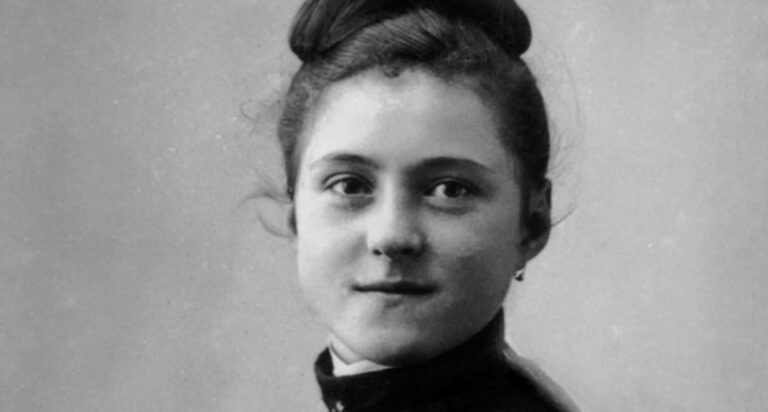18 September 2024
Saint Therese of Lisieux | The Year of Prayer
By Joey Belleza, PhD (Cantab.)
Maintaining a consistent prayer life is often difficult, requiring the discipline that Saint Teresa of Avila mentions throughout her autobiography. The ascent to true union with God, as Teresa and Bonaventure have shown us, is often plagued by the distractions of daily life, to the point that we might even fall out of the habit of prayer. Starting again from zero, as it were further hinders our growth in virtue, and the task of entering into that discipline again can be discouraging. One saint who understood this struggle well was a latter day French disciple of Saint Teresa—Saint Therese of Lisieux, also known as Saint Therese of the Child Jesus, or simply “the Little Flower.”
Saint Therese of Lisieux is rare among the Doctors of the Church, in that she died very young (at the age of 24) and that she therefore did not enjoy the elite formal education of the others. And yet, by numbering her among the Doctors, the Church extols her example of simple faith and simple wisdom as having a spiritual and intellectual value comparable to that of other great teachers like Augustine, Thomas Aquinas, Bonaventure, and Teresa.
“Sometimes when I am in such a state of spiritual dryness that not a single good thought occurs to me,” Therese write, “I say very slowly the ‘Our Father,’ or the ‘Hail Mary,’ and these prayers suffice to take me out of myself.”
“I take refuge, then, in prayer, and turn to Mary, and our Lord always triumphs.”
This is the essence of her “Little Way,” that is, her simple way of uniting herself daily to Christ though humble acts of prayer and devotion. And while the breadth and complexity of the liturgy is proposed to us by the Church as a maximal and most secure means of receiving the graces of Christ, the extra-liturgical modes of conformity to Christ are also necessary for the life of faith.
“For me, prayer is a burst from my heart, it is a simple glance thrown toward heaven, a cry of thanksgiving and love in times of trial as well as in times of joy… Frequently, only silence can express my prayer.” Even the silence of our hearts can express our longing for God, our utter dependence on him. Thus, with many modes of prayer at our disposal, she exhorts us: “Let us not grow tired of prayer: confidence works miracles.”
Saint Therese, in her simplicity, has rightly taken her place among the great Doctors of the Church. And yet, as Thomas and Bonaventure stood on the shoulders of Aristotle, Saint Therese stood on the example of Archimedes when she said: “Our fulcrum is God; our lever, prayer; prayer which burns with love. With that we can lift the world!” Let us take heart from the humble example of Saint Therese, who faced moments of spiritual dryness not with despair, but with humble recourse to the prayers which Christ and his Church have given us.

